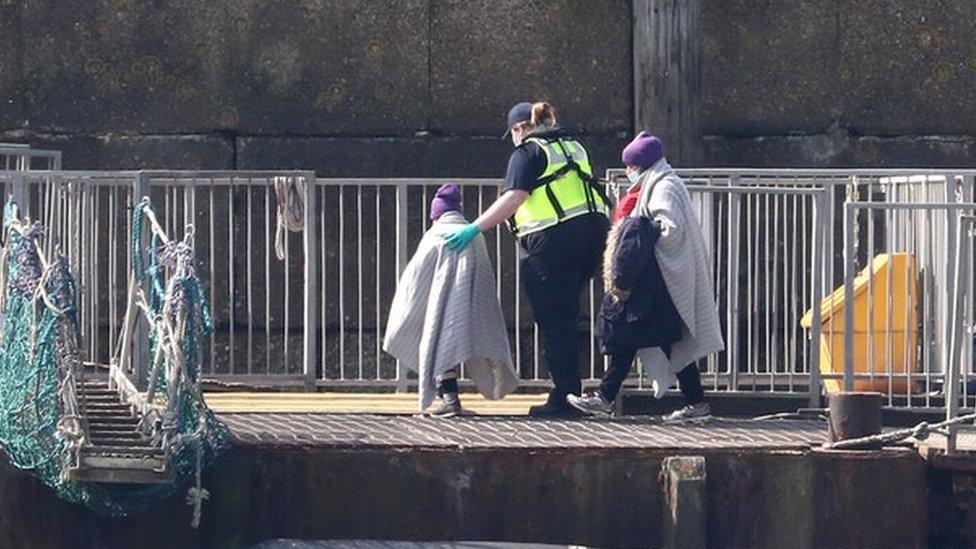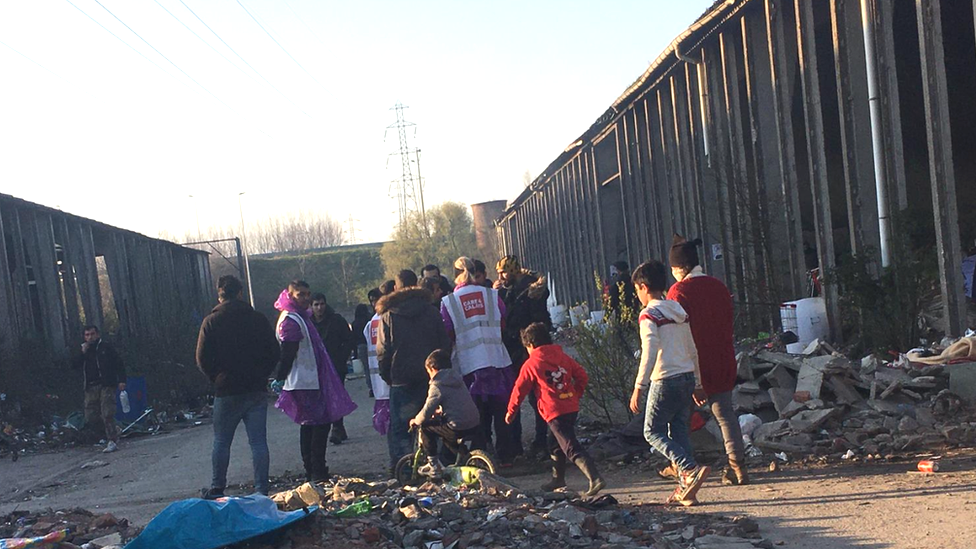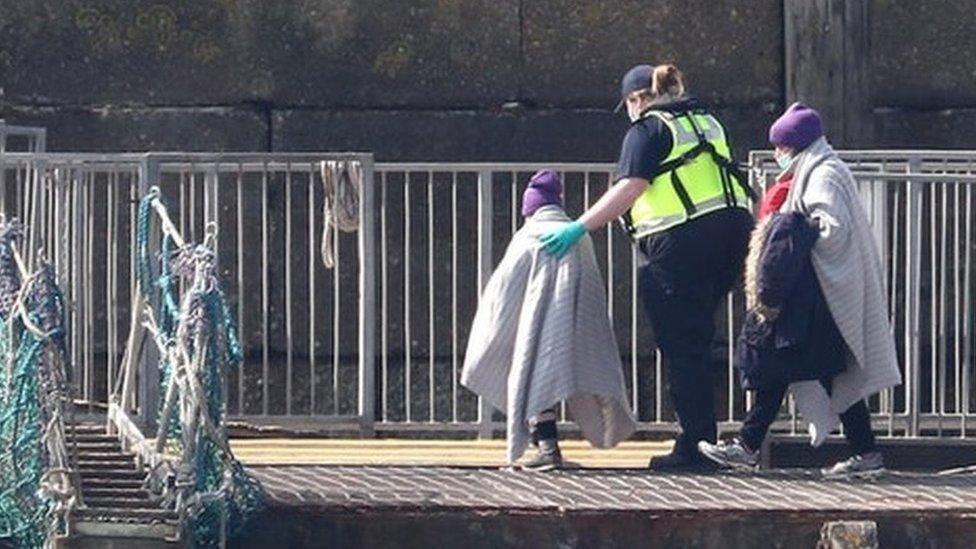Channel migrants: Lone children 'could overwhelm council services'
- Published

The number of children crossing the Channel in dinghies is rising, Kent County Council says
The rising number of child migrants crossing the Channel by boat risks overwhelming social services, the leader of Kent County Council has said.
Roger Gough appealed to Priti Patel to "prevent a crisis escalating into something unmanageable and unsafe".
More than 170 unaccompanied children have arrived in Kent since January, mainly by small boat, he said.
The Home Office said payments to councils to deal with the problem "significantly increased" in May 2019.
But, Mr Gough said the numbers of unaccompanied asylum-seeking children (UASC) had to levels seen during the height of the European migrant crisis in 2015.

The Immigration Services Union has raised fears unaccompanied children arriving by boat are being trafficked into modern slavery.
The number of people crossing the Channel in small boats has reached a record high, with more than 600 migrants arriving this month.
UASCs are passed into the care of the county council and Mr Gough, leader of the Conservative-run authority, said it would soon not be able to meet its legal responsibility to "safely care for new arrivals".
A scheme intended to move children to other parts of the country had stopped working, leaving the council as the "the sole carers of the nation's UASC," he said.
The council currently looks after 473 children aged under-18 and a further 928 young people who have turned 18 since arriving but are still in the council's care.

Mr Gough said that the transfer system should be overhauled with more money offered by the Home Office to persuade other councils to take responsibility for some of the under-18s.
Bridget Chapman, of Kent Refuge Action Network, which supports lone chid asylum-seekers, said the charity supported the council's calls for greater funding.
"Whether children are dispersed around the country using a revamped national transfer scheme, or stay in Kent, they will need properly funded services in order to thrive and integrate," she said.
If relocations are to be recommenced, they must take place in a "timely manner," she added.
"Before the scheme broke down in 2018 children were often waiting months to be transferred, meaning that they made friends and built networks and relationships before being uprooted again," she said.

Charities say between 100 and 200 migrant children are camped in Calais
The Home Office said: "The government takes the welfare of unaccompanied children very seriously and provides funding to local authorities, including Kent, as a contribution to the cost of supporting unaccompanied children and those who leave care."
- Published18 May 2020

- Published20 January 2020
